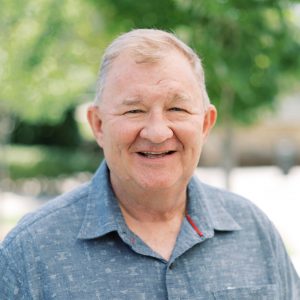 by Grady King:
by Grady King:

Being a church leader is a high calling with great demands often punctuated with loneliness, self-doubt, and unrealistic expectations. Many leaders do not sleep well or experience sabbath. And it is not merely because of the present pandemic. Before COVID, the realities of an aging church demographic, a post-Christian culture, gender inclusion, racism, and human sexuality were constant conversations. Church leadership is always challenging, and at times, overwhelming. Back to the basics of prayer, a meditation on Scripture and vulnerability with other leaders is essential. These acts of faith, hope, and love are indispensable to leading well with trust and courage. But the willingness to ask for help and do the hard work of group functioning is bedrock. As a church leader asking for help, seeking guidance and support is not an option. One of the signs of a healthy marriage is asking for help. It is valid for church leaders as well. Like marriages—some couples wait too long to reach out. So do church leaders.
In my tribe, Churches of Christ, the buck stops with the elders. As the elders go, so goes the church. We choose elders as individuals, yet, functioning as a group is the challenge. Most of the ‘time, there is minimal elder group equipping (i.e., personality, gifts, decision making, covenant, accountability, etc.). As a result, it is poor and often unhealthy group functioning that takes a toll on individual elders and keeps a church stuck. Most elders I know are conscientious and want to do what is best for the church. Yet, an elder group becomes stuck when deep-rooted and long-lived dysfunction is the norm. Asking for help is essential. Paying attention to how an elder group functions with each other is of greater import for the church than a new program quick fix or “If we just had more sermons about…” or the nostalgic move of “years ago, we did _______, and it worked.”
I often ask an open-ended question of elders: “What is your greatest need?” The answers given are generally about everything except what is going on in the elder group itself. However, conversations with ministers and in church health surveys point within the elder group as the primary need.
I see some common patterns regardless of the size or context of the church.
- Stuck but refusing to ask for help
- Seeking quick fixes over hard conversations
- Fear of conflict/pain avoidance
- Representing a church constituency over leading people
- Deciding not to decide—which is a decision back to #1
In short, there are well-intentioned, godly leaders who are in a flawed system. The good news is that it doesn’t have to be that way. It all begins with asking for help and doing the hard work of group leadership. Leaders, no matter the context, always have a choice. To remain stuck is a choice. Sadly, many have already made that choice, and the fruit of that decision is apparent. It is doubtful a new minister or program will make much difference.

Leave a Reply